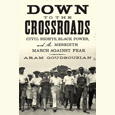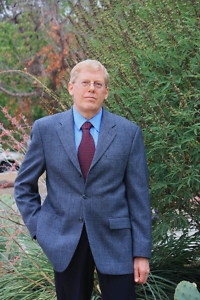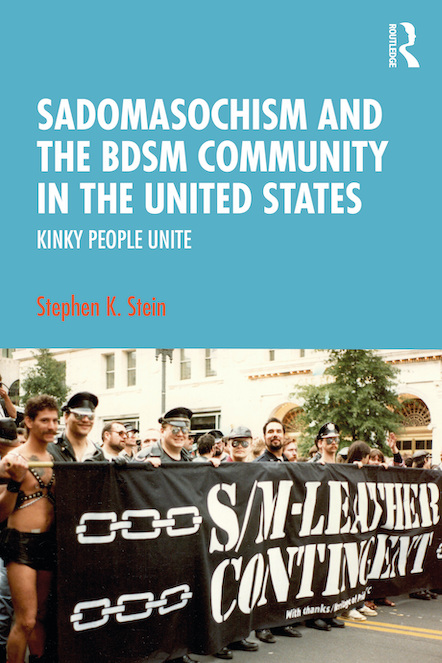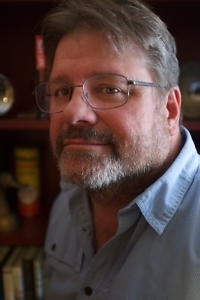Enter the Dragon
Peter Ho Davies talks with Chapter 16 about writing, teaching, and growing up in a Welsh-Chinese home
Peter Ho Davies is author of the acclaimed novel The Welsh Girl (2007), as well as two collections of short stories, The Ugliest House in the World (1997) and Equal Love (2000). His work has been much anthologized and has appeared in Harpers, The Atlantic, and The Washington Post, among other publications. In 2003, Granta magazine included Davies on its top-twenty list, “Best of Young British Novelists.” He has received fellowships from the Guggenheim Foundation, the National Endowment for the Arts, and the Fine Arts Work Center in Provincetown, and, in 2008, was a recipient of the Pen/Malamud Award.
Born in England to Welsh and Chinese parents, Davies currently resides in the U.S., where he directs the MFA program in creative writing at the University of Michigan. Known for employing a wide array of viewpoints and time periods, Davies’s stories cover vast emotional territory—from the struggles of an aging pair of bank robbers to Chinese funeral rituals to siblings dying of AIDS.
Chapter 16: The Chinese community has long played an integral role in Welsh society, and you grew up with parents from both communities. In your home, did you celebrate both Welsh and Chinese traditions?
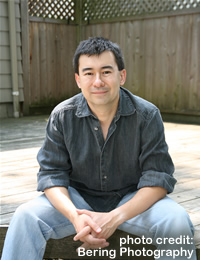 Davies: At home we usually celebrated Chinese New Year, but as for celebrating Welsh traditions, the nearest we came to that was cheering for Wales in rugby matches against the English. (Of course, there’s also a good deal of overlap between Welsh and broader British traditions in celebrations like Christmas). By the way, I’m not sure that I’d claim the Chinese community to have “long played an integral role in Welsh society.”
Davies: At home we usually celebrated Chinese New Year, but as for celebrating Welsh traditions, the nearest we came to that was cheering for Wales in rugby matches against the English. (Of course, there’s also a good deal of overlap between Welsh and broader British traditions in celebrations like Christmas). By the way, I’m not sure that I’d claim the Chinese community to have “long played an integral role in Welsh society.”
Chapter 16: The Welsh Girl contains great insight into life in Wales, including the prejudice felt among some toward the English. Was this sentiment part of your own everyday experience?
Davies: Not every day by any means, but I was struck as a child that my father occasionally spoke of feeling an anti-Welsh prejudice at work (this was in England, where I was born and brought up), albeit mostly in the form of jokes. My Chinese mother rarely spoke of such prejudice, though as a child I was subject to some mild and typical schoolyard prejudice and was very sensitive to the fact that I looked different. So focused was I on prejudice and skin color that my father’s occasional mentions of his experiences surprised me and stuck with me.
Chapter 16: The themes of ambiguity and conflicted loyalty frequently crop up in your work. Is this the result of being an expatriate, or is it a natural part of the storytelling process?
Davies: It’s surely a facet of my expatriate life, and before that the tug I felt between my Welsh and Chinese heritages, and my English home. Still, in a broader sense, conflict is likely essential in any good story, and conflicted loyalties are certainly one important expression of that.
Chapter 16: At what age did you find yourself interested in creative writing, and who were some of your early influences?
Davies: In my teens, firstly, when I wrote what I read—mostly science fiction. Then I came across a volume of interviews with science fiction writers that included Kurt Vonnegut, and his work lead me towards others outside of the genre. It’s a short hop from Slaughter House Five to Catch 22, and from there to The Naked and the Dead, and from there to Hemingway and Fitzgerald.
Chapter 16: In your own work, have you ever found yourself disregarding the advice you give your students?
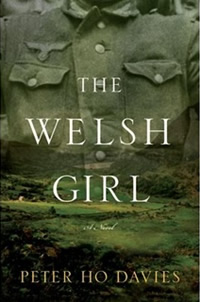 Davies: Actually, no. Partly, because I’m usually eager to bring things I’ve discovered via my own work into my classes, and partly because I couch most of my advice to them as provisional. If there are rules of creative writing, they’re “rules of thumb” at best, and it’s mostly valuable to teach them so that the students can test those rules, bending and breaking them if need be.
Davies: Actually, no. Partly, because I’m usually eager to bring things I’ve discovered via my own work into my classes, and partly because I couch most of my advice to them as provisional. If there are rules of creative writing, they’re “rules of thumb” at best, and it’s mostly valuable to teach them so that the students can test those rules, bending and breaking them if need be.
Chapter 16: One of The Welsh Girl’s characters is the enigmatic Nazi Rudolf Hess, whose 1941 flight to Britain remains shrouded in mystery. Did you find it difficult to weave historical characters—especially one as politically charged as Hess—into a work of fiction?
Davies: I’ve written of some “real” characters before—Butch Cassidy and the Sundance Kid, for example. In that instance, though, the stakes are much lower than writing about someone like a member of Hitler’s inner circle. I doubt I could have written of any other figure in the Nazi hierarchy for fear of the fiction distorting the truth, but Hess is a somewhat unusual figure in that his truth is obscure, shrouded by his amnesia (or at least his claims of amnesia). That gap in the historical record seemed like a space that fiction could approach without violating the facts.
Chapter 16: Your latest collection, Equal Love: Stories, adopts a remarkably wide range of perspectives, from a mixed-race couple abducted by aliens to the second-person account of an expatriate. Is there an organizing theme at work here, or is this simply a straight-forward collection of work written over a period of time?
Davies: Just about all the stories are interested in parent-child relationships, a thematic link suggested by the epigraph from E.M. Forster that gives the book its title:
For a wonderful physical tie binds the parents to the children; and—by some sad, strange irony—it does not bind us children to our parents. For if it did, if we could answer their love not with gratitude but with equal love, life would lose much of its pathos and much of its squalor, and we might be wonderfully happy.
Chapter 16: What books do you currently have on your nightstand?
Davies: Percival’s Planet by my colleague Michael Byers—a breathtaking new historical novel about, among other things, the discovery of Pluto in the 1930s.
Chapter 16: Do you most identify with the Welsh dragon or the Chinese dragon?
Davies: I try to resist the inevitable choice that people of mixed heritages feel pressured to make, so I’ll say neither and both!
Peter Ho Davies will read from his work at 7 p.m. on September 30 in Vanderbilt University’s Buttrick Hall, Room 203.

